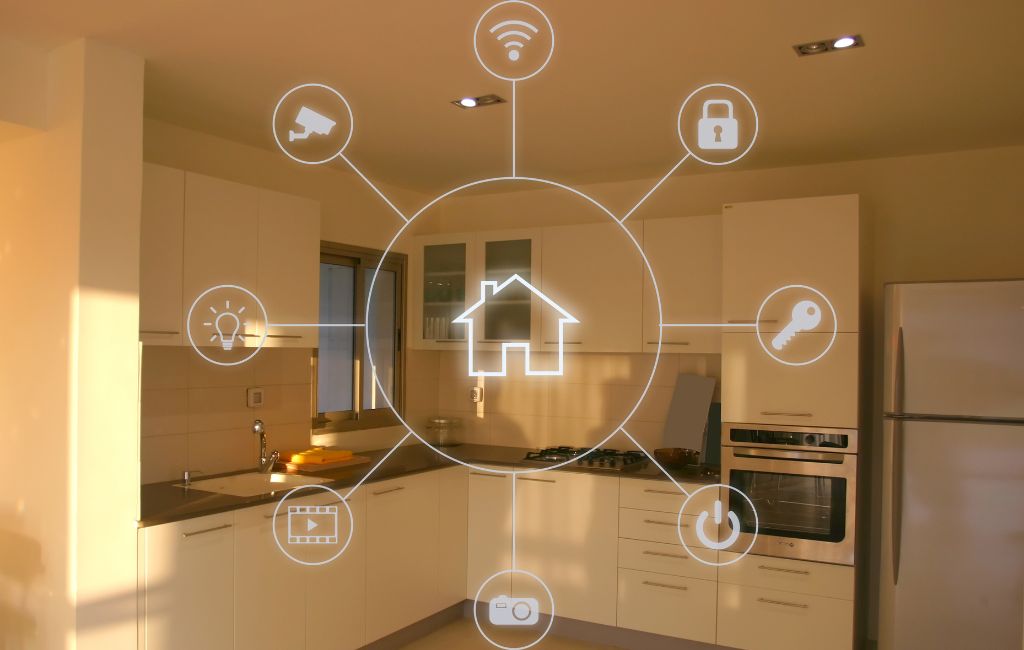The concept of a smart home has revolutionized the way we interact with our living spaces, offering a level of convenience and connectivity that was once the stuff of science fiction. But amidst this digital integration, a pressing question arises: Can smart homes work offline? For many homeowners and businesses, the idea of relying solely on the internet for home automation can be daunting. This article delves into the feasibility of operating smart homes without constant online connectivity and explores the benefits and challenges of such a setup.

The Basics of Smart Home Technology
Before addressing whether smart homes can function offline, it's essential to understand what constitutes a smart home. At its core, a smart home is equipped with devices that can be controlled remotely via the internet. These devices from thermostats and lights to security cameras and refrigerators use the Internet of Things (IoT) to offer seamless communication and control. The ability to automate tasks, monitor home status, and receive real-time updates is what makes smart homes appealing to modern homeowners.
However, the reliance on internet connectivity raises concerns. What happens when the internet goes down? Are there solutions that allow homeowners to maintain control over their smart devices in such scenarios?
Offline Capabilities of Smart Homes
The good news is that some smart home systems do offer offline functionality. These systems often rely on local networks like Bluetooth or Zigbee to communicate between devices without needing an active internet connection. For instance, smart lighting systems can continue to operate based on preset schedules or manual control through a local app, even when the internet is unavailable.
Moreover, certain smart hubs are designed to store automation routines locally. This means that even if your internet connection is disrupted, the routines will still run as programmed. The ability to maintain essential functions like lighting, security, and climate control during internet outages is a significant advantage for homeowners seeking reliability and peace of mind.
Smart Home Hubs and Offline Functionality
Smart home hubs play a pivotal role in enabling offline capabilities. These hubs act as the central point of communication for all connected devices, managing tasks and interactions efficiently. By opting for a hub that supports offline operations, homeowners can ensure that their smart home remains functional even in the absence of an internet connection.
Choosing the right hub is crucial. Some popular options include the Samsung SmartThings Hub and the Hubitat Elevation, both known for their robust offline performance. These hubs allow users to create complex automation without relying on the cloud, providing a more resilient smart home system.
For guidance on selecting a suitable smart home hub, you can explore How to Choose a Smart Home System.
Challenges of Offline Smart Homes
While the prospect of an offline smart home is appealing, it's not without its challenges. One significant limitation is the reduced access to remote control and monitoring. Without internet connectivity, homeowners cannot control their devices from afar or receive updates about their home's status.
Additionally, certain smart devices are inherently dependent on internet services. For instance, voice assistants like Amazon Alexa and Google Assistant require an active internet connection to process requests. This dependency means that some smart home features may be unavailable in offline mode.
Balancing Online and Offline Smart Home Features
To strike a balance between online convenience and offline reliability, homeowners can adopt a hybrid approach. By selecting devices and systems that offer both offline capabilities and internet-based features, they can enjoy the best of both worlds. This approach ensures that essential functions remain operational during internet outages while still benefiting from the advanced features provided by online connectivity.
For an insightful comparison of voice and app control in smart homes, visit Voice Control vs App Control.
Benefits of Offline-Capable Smart Homes
Embracing offline-capable smart home solutions offers several benefits. First and foremost, it enhances the reliability of the system. In emergencies or network disruptions, homeowners can rely on their smart home devices to function as expected.
Moreover, offline functionality can contribute to improved security. By minimizing reliance on the internet, the risk of cyberattacks on smart home systems is reduced. This added layer of security is particularly appealing to businesses and homeowners who prioritize data privacy.
Lastly, offline-capable systems can also lead to energy savings. Devices that operate without constant internet access often consume less power, resulting in lower electricity bills. To learn more about energy-efficient smart home devices, check out Smart Home Devices That Save Electricity.
Conclusion
In conclusion, the question of whether smart homes can work offline is not a simple yes or no. While some limitations exist, many smart home systems offer offline capabilities that provide essential functionality during internet outages. By choosing the right devices and hubs, homeowners and businesses can enjoy a reliable and efficient smart home experience without being entirely dependent on internet connectivity.
For more insights into making the most of your smart home, consider exploring Smart Home Integration Made Simple.

FAQs
Can all smart home devices work offline?
Not all smart home devices can work offline. However, many systems offer some level of offline functionality through local networks like Bluetooth or Zigbee, allowing basic operations even during internet outages.
What are the best smart home hubs for offline use?
The Samsung SmartThings Hub and Hubitat Elevation are popular choices for offline use, known for their robust performance and ability to run automation routines without internet connectivity.
How can I maximize the offline capabilities of my smart home?
To maximize offline capabilities, choose devices and hubs that support local networking, store automation routines locally, and consider a hybrid approach that balances online and offline features for optimal performance.

